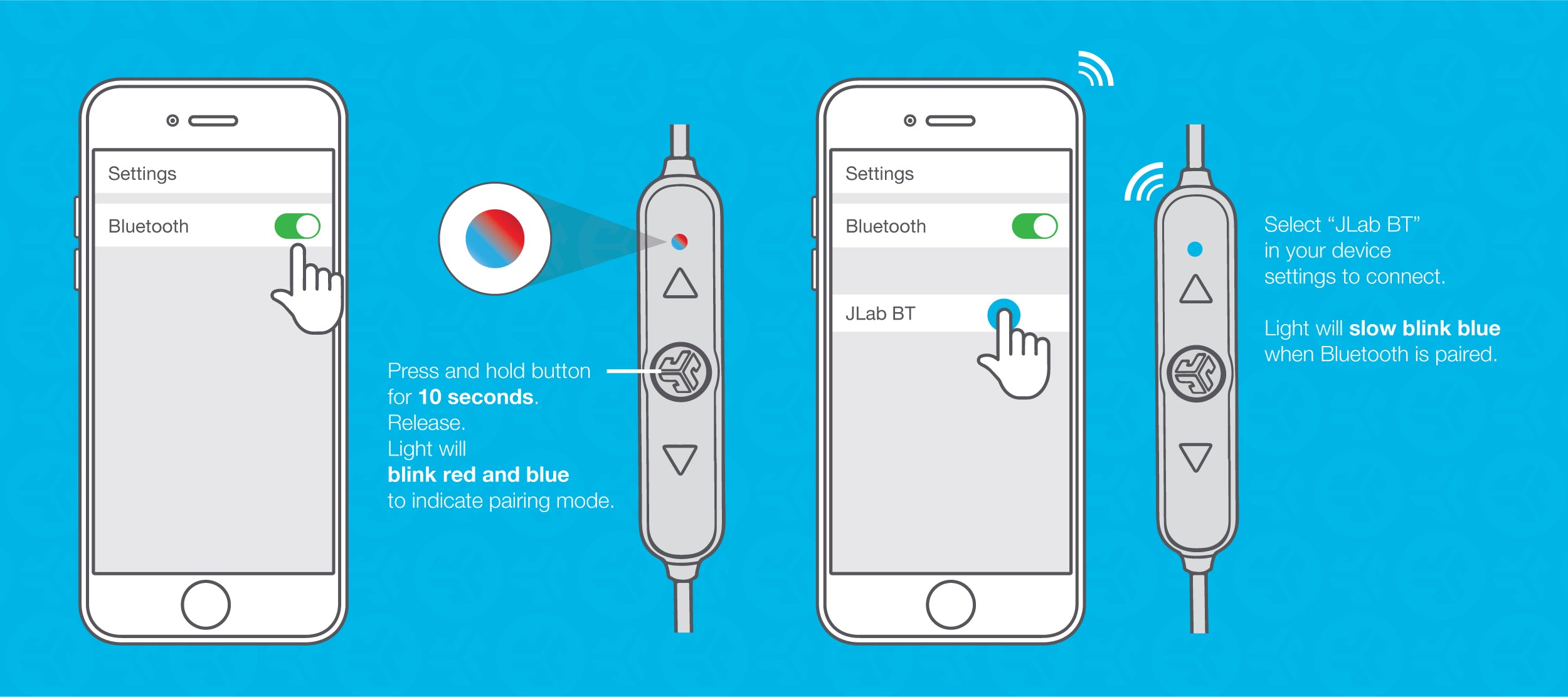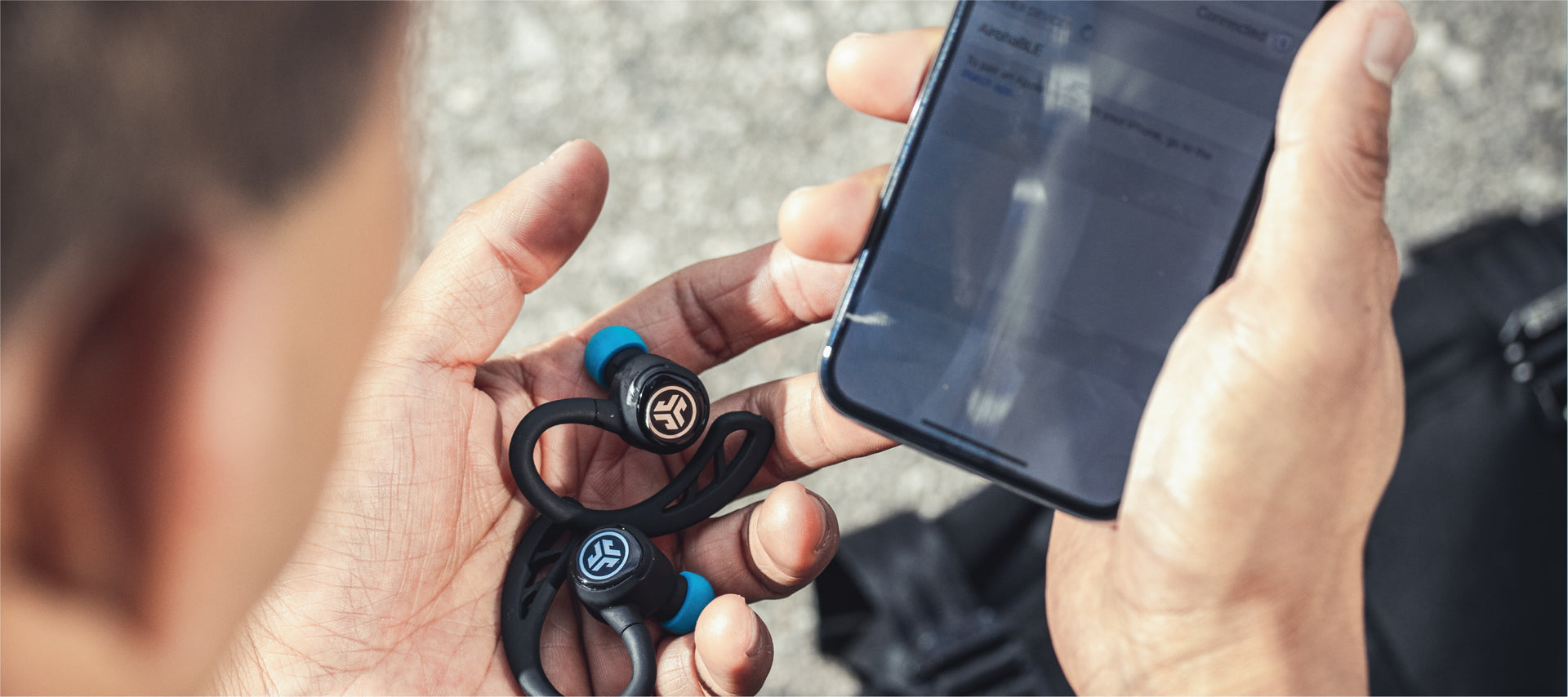BLUETOOTH FACTS
Bluetooth is a universally used technology for exchanging data (music + audio) over short distances (using short-wavelength UHF radio waves in the ISM band from 2.4 to 2.485 GHz[4]) from fixed and mobile devices.
While the range of Bluetooth is 30+ feet, the optimal range for any headphone brand with Bluetooth is 2 feet from the phone or device, particularly outdoors when the signal cannot bounce off walls and ceilings. This applies to all brands of Bluetooth headphones and earbuds.
Most JLab wireless Bluetooth products have the antenna in the power/on-off and volume track controls, which is on the right side of the earbuds. The ‘JLab’ text should face away from the body for best results.
Here's an example of Bluetooth functionality on a JLab product:

Why is a signal lost?
Three elements can affect your signal/sound/loss of transmission and produce cutting out audio for any brand headphones:
1. Device (phone, computer, MP3 player).
Older devices may have older Bluetooth technology, which can affect the connection.
2. Headphones, speakers or the audio receiving device.
3. Your environment.
These elements may interfere with your Bluetooth signal:
- Moisture (water, rain, sweat) on your headphones/headset
- Moisture (water, rain, sweat) on your phone, MP3 player, or other audio device
- Clothing or covers (anything over the top of your headphones/headset or phone/audio device)
- Low battery in either headphone or phone/device
- Bluetooth version used in devices
- Metal objects near Bluetooth on phone/device or headphones/headset (including coins, keys, etc)
- Other Bluetooth signals (busy locations, trains, conventions may have lots of signals)
Because Bluetooth is a short-distance radio transmission, it must travel to get somewhere (think of how sound travels). Water, liquid or moisture are some of the hardest elements for a signal to travel through and offer the most resistance. Similarly, a person’s body is also one of the hardest elements for a signal to travel through.

